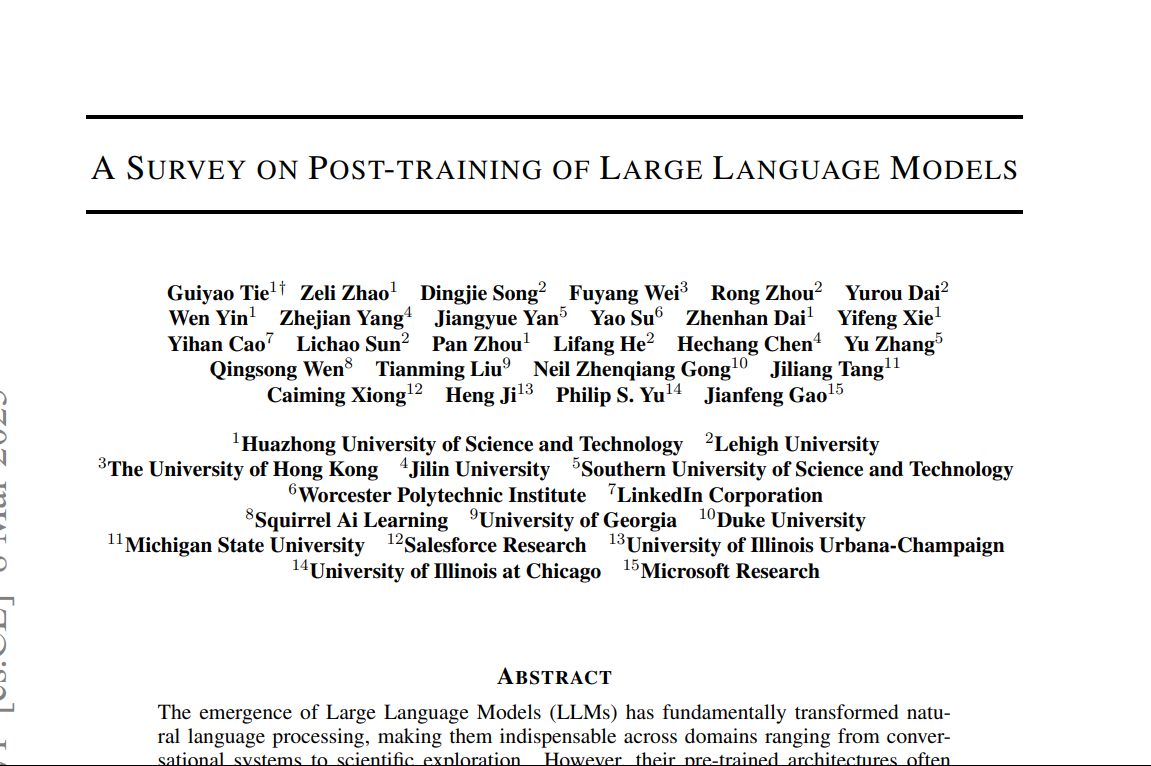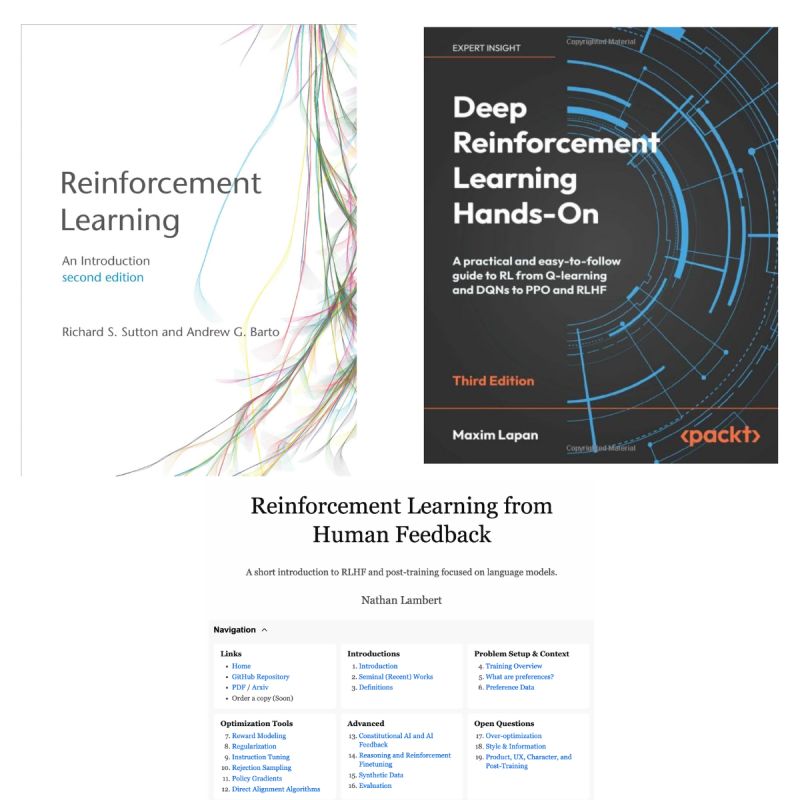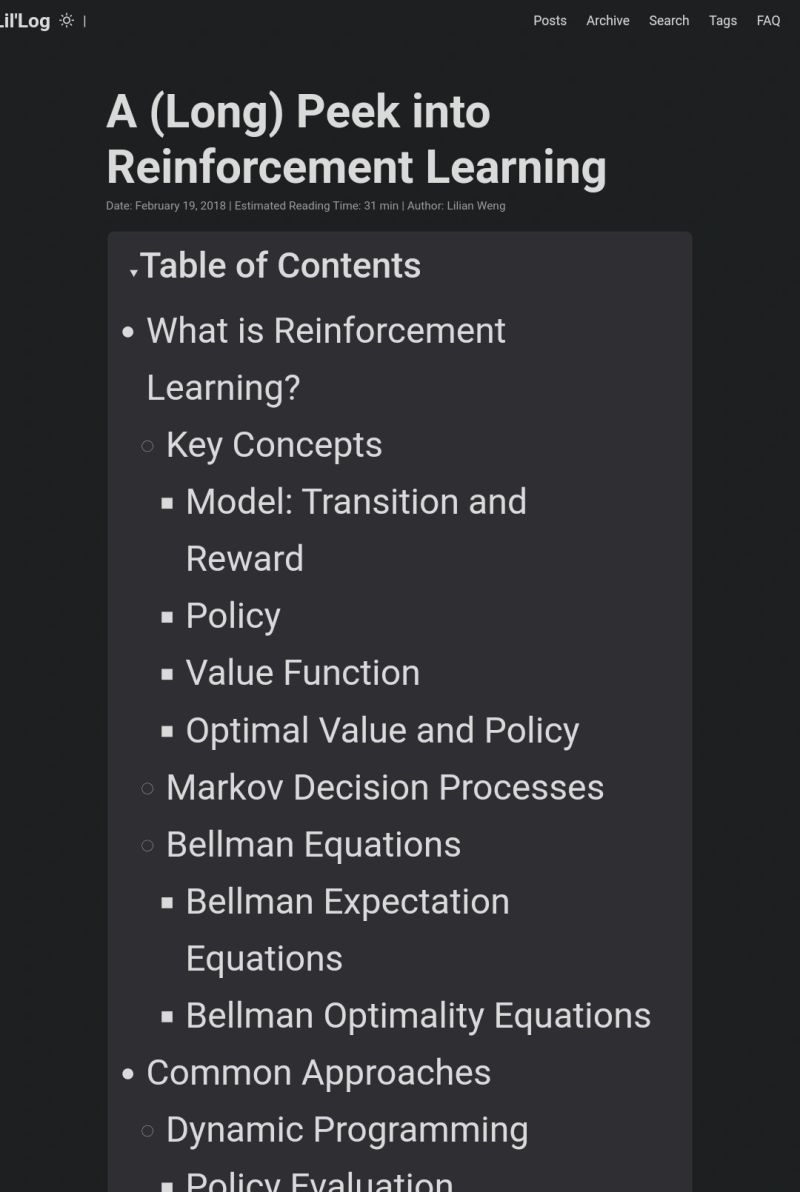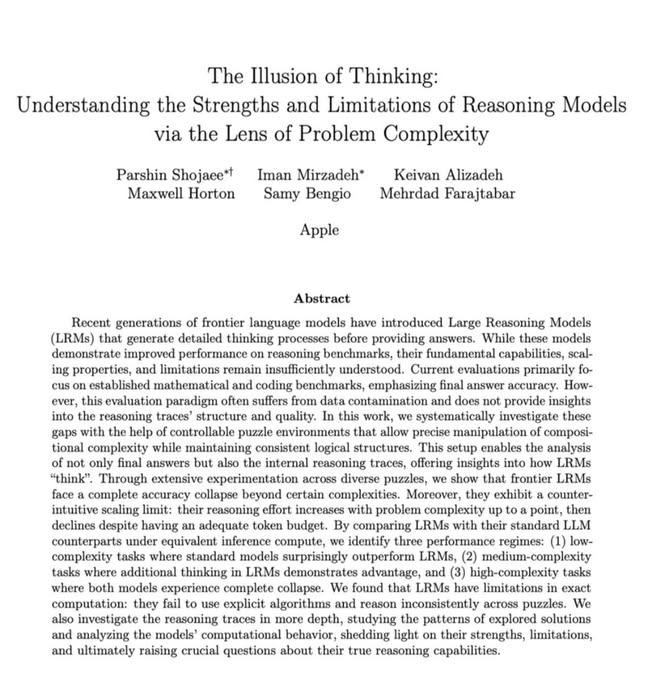Back
AI Engineer
AI Deep Explorer | f... • 10m
LLM Post-Training: A Deep Dive into Reasoning LLMs This survey paper provides an in-depth examination of post-training methodologies in Large Language Models (LLMs) focusing on improving reasoning capabilities. While LLMs achieve strong performance from pretraining on massive datasets, post-training methods such as fine-tuning, reinforcement learning (RL) and test-time scaling are essential for aligning LLMs with human intent, enhancing reasoning and ensuring safe, context-aware interactions. Key Highlights 1. Post-Training Taxonomy -The paper introduces a structured taxonomy of post-training strategies: -Fine-tuning: Task/domain-specific adaptation -Reinforcement Learning: Optimization using human or Al feedback -Test-time Scaling: Inference-time improvements in reasoning and efficiency 2. Fine-Tuning -Enhances domain-specific capabilities but risks overfitting. -Parameter-efficient techniques like LoRA and adapters reduce computational overhead. -Struggles with generalization if overly specialized. 3. Reinforcement Learning (RL) -RLHF, RLAIF, and DPO refine model outputs based on preference signals. -RL in LLMs requires dealing with high-dimensional, sparse, and subjective feedback. -Chain-of-thought (CoT) reasoning and stepwise reward modeling help improve logical consistency. 4. Test-Time Scaling -Involves techniques like Tree-of-Thoughts and Self-Consistency. -Dynamic computation during inference improves multi-step reasoning. -Includes search-based methods and retrieval-augmented generation (RAG). 5. Advanced Optimization Techniques -PPO, GRPO, TRPO, OREO, and ORPO are discussed with comparisons. -These methods balance stability, efficiency and alignment with human values. 6. Reward Modeling -Both explicit (human-annotated) and implicit (interaction-based) reward types are covered. -Process-oriented rewards (intermediate reasoning steps) are emphasized for complex reasoning. 7. Practical Benchmarks and Models -Extensive table covering 40+ state-of-the-art LLMs (e.g., GPT-4, Claude, DeepSeek, LLaMA 3, etc.) with their RL methods and architecture types. Introduces DeepSeek-R1 and DeepSeek-R1-Zero showcasing pure RL-based LLM training. Keep learning and keep growing!!
More like this
Recommendations from Medial
AI Engineer
AI Deep Explorer | f... • 10m
"A Survey on Post-Training of Large Language Models" This paper systematically categorizes post-training into five major paradigms: 1. Fine-Tuning 2. Alignment 3. Reasoning Enhancement 4. Efficiency Optimization 5. Integration & Adaptation 1️⃣ Fin
See More
AI Engineer
AI Deep Explorer | f... • 10m
Having worked on Reinforcement Learning, it’s always fascinating to see how it’s being applied in the world of LLMs. If you’re curious about how RL powers modern LLM agents, especially in areas like reward modeling, and policy gradients here are a f
See More
AI Engineer
AI Deep Explorer | f... • 10m
Give me 2 minutes, I will tell you How to Learn Reinforcement Learning for LLMs A humorous analogy for reinforcement learning uses cake as an example. Reinforcement learning, much like baking a cake, involves trial and error to achieve a desired ou
See MoreNikhil Raj Singh
Entrepreneur | Build... • 5m
Hiring AI/ML Engineer 🚀 Join us to shape the future of AI. Work hands-on with LLMs, transformers, and cutting-edge architectures. Drive breakthroughs in model training, fine-tuning, and deployment that directly influence product and research outcom
See MoreAI Engineer
AI Deep Explorer | f... • 10m
A (Long) Peek into Reinforcement Learning How do AI agents master games like Go, control robots, or optimize trading strategies? The answer lies in Reinforcement Learning (RL)—where agents learn by interacting with environments to maximize rewards.
See More
Parampreet Singh
Python Developer 💻 ... • 11m
3B LLM outperforms 405B LLM 🤯 Similarly, a 7B LLM outperforms OpenAI o1 & DeepSeek-R1 🤯 🤯 LLM: llama 3 Datasets: MATH-500 & AIME-2024 This has done on research with compute optimal Test-Time Scaling (TTS). Recently, OpenAI o1 shows that Test-
See More
Download the medial app to read full posts, comements and news.













/entrackr/media/post_attachments/wp-content/uploads/2021/08/Accel-1.jpg)




















